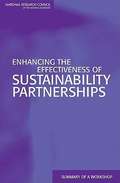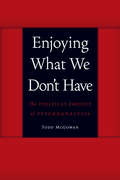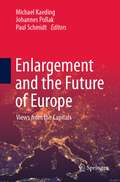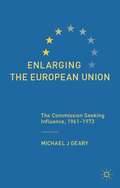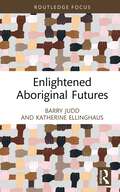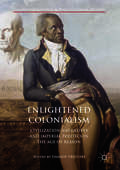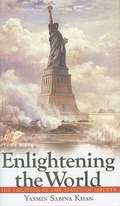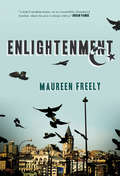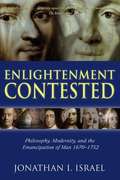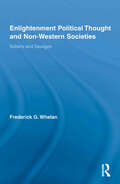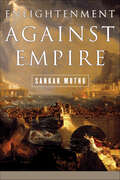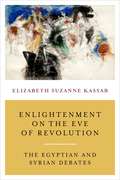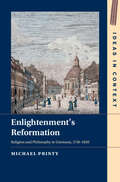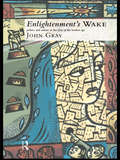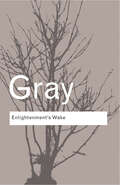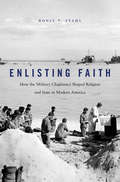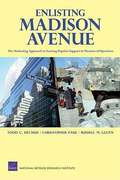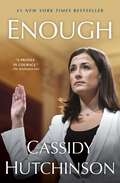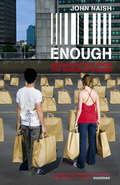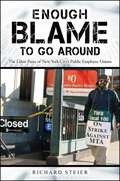- Table View
- List View
Enhancing the Effectiveness of Sustainability Partnerships: Summary of a Workshop
by National Research Council of the National AcademiesSustainable development--meeting human needs while nurturing and restoring the planet's life support systems--requires a continuous process of scientific innovation, new knowledge and learning, and collaborative approaches to implementing technologies and policies. To address these challenges, different stakeholder groups are increasingly seeking to ally themselves through partnership, in order to implement projects, deliver services, establish secure funding mechanisms, and achieve on the ground results. Advocates of this collaborative approach point to the failure of governmental regulations, international commitments, or business as usual. However, skeptics often question the effectiveness of partnerships at achieving sustainable development goals and, in the absence of demonstrated results, wonder where partnerships are adding value. A symposium held in June 2008 and summarized in this volume, attempted to advance the dialogue on partnerships for sustainability in order to catalyze existing knowledge and inform future efforts. Ideas that came out of discussions at the symposium will help leaders in government, the private sector, foundations and NGOs, and universities, both in the United States and internationally, as they develop and participate in new partnerships for sustainability.
Enjoying What We Don't Have: The Political Project of Psychoanalysis (Symploke Studies in Contemporary Theory)
by Todd McGowanAlthough there have been many attempts to apply the ideas of psychoanalysis to political thought, this book is the first to identify the political project inherent in the fundamental tenets of psychoanalysis. And this political project, Todd McGowan contends, provides an avenue for emancipatory politics after the failure of Marxism in the twentieth century.Where others seeking the political import of psychoanalysis have looked to Freud&’s early work on sexuality, McGowan focuses on Freud&’s discovery of the death drive and Jacques Lacan&’s elaboration of this concept. He argues that the self-destruction occurring as a result of the death drive is the foundational act of emancipation around which we should construct our political philosophy. Psychoanalysis offers the possibility for thinking about emancipation not as an act of overcoming loss but as the embrace of loss. It is only through the embrace of loss, McGowan suggests, that we find the path to enjoyment, and enjoyment is the determinative factor in all political struggles—and only in a political project that embraces the centrality of loss will we find a viable alternative to global capitalism.
Enlargement and the Future of Europe: Views from the Capitals
by Michael Kaeding Paul Schmidt Johannes PollakThis book analyses Member States’ and EU neighbours’ national visions for the enlargement of the European Union (EU), highlighting 41 national histories, policies, and corresponding public perceptions of European integration. In a geopolitical context in which Russia’s war of aggression in Ukraine has renewed the impetus for EU enlargement, national views vary considerably on the timing, conditions, and reforms necessary to welcome Eastern neighbours and the Western Balkans countries into the European family. Moreover, EU enlargement policy is not only an investment in peace and stability; it has also become a political tool in response to the exploitation of interdependencies and illiberal pressures. This book presents concrete policy recommendations to national governments and the EU on how to move forward productively.
Enlarging the European Union
by Michael J. GearyThe first enlargement was one of the most divisive and politically charged events in the history of the present-day European Union. French opposition to British membership meant that London had to wait more than a decade at the Community's door. Other countries, including Denmark and Ireland, whose requests for membership were tied to the coat-tails of the British applications, had to endure a similar wait. This book focuses on the early history of the EU and in particular the role played by the European Commission, an institution whose aim was to gain influence over the Community's agenda and to shape its policies, including the issue of enlargement. Enlarging the European Union explores the Commission's interaction with the member states and the applicant countries between the years 1961 and 1973 and also the Commission's attempts to gain and wield influence over the first enlargement round.
Enlightened Aboriginal Futures (Short Takes on Long Views)
by Katherine Ellinghaus Barry JuddThis book examines the radical intervention of the German-Australian Lutheran missionary F. W. Albrecht in the education of Aboriginal children. Albrecht’s ideas about consent, freedom of choice and personal autonomy were expressed in schemes designed to educate and empower Aboriginal people and efforts to find Aboriginal futures through education, training and employment. This book explores how Aboriginal people understood Albrecht’s work and the Enlightenment concepts on which it was based. In the context of an Anglo-Australian settler-colonialism that sought to systematically remove the freedom and autonomy of Indigenous people, this study demonstrates how those who participated in the Albrecht scheme were able to reconstruct themselves in ways that fused their own Aboriginal culture and identity with the ideas and values imported from an enlightened Germany. This book will appeal to students and scholars of cultural history, colonialism, Lutheranism, race and ethnicity and Indigenous studies. It will also be illuminating reading to policymakers searching for a deeper understanding of colonial interventions in Indigenous communities.
Enlightened Colonialism
by Damien TricoireThis book further qualifies the postcolonial thesis and shows its limits. To reach these goals, it links text analysis and political history on a global comparative scale. Focusing on imperial agents, their narratives of progress, and their political aims and strategies, it asks whether Enlightenment gave birth to a new colonialism between 1760 and 1820. Has Enlightenment provided the cultural and intellectual origins of modern colonialism? For decades, historians of political thought, philosophy, and literature have debated this question. On one side, many postcolonial authors believe that enlightened rationalism helped delegitimize non-European cultures. On the other side, some historians of ideas and literature are willing to defend at least some eighteenth-century philosophers whom they consider to have been "anti-colonialists". Surprisingly enough, both sides have focused on literary and philosophical texts, but have rarely taken political and social practice into account.
Enlightening the World: The Creation of the Statue of Liberty
by Yasmin Sabina KhanThe Statue of Liberty has been a symbol of US democratic ideals since 1886. Based on extensive research including travels to France where Liberty Enlightening the World was created, an independent scholar chronicles the story behind its conception, construction, and gifting to the US in the wake of the Civil War. Khan showcases sculptor Auguste Bertholdi, engineer Gustave Eiffel, poet Emma Lazarus, and fundraiser/publisher Joseph Pulitzer, among the many individuals involved. The book features new details about Liberty's design and b&w images. Annotation ©2010 Book News, Inc. , Portland, OR (booknews. com)
Enlightenment
by Maureen Freely"A dark Conradian drama, set in a beautifully illuminated Istanbul, where the past is always with us. "-Orhan Pamuk, Nobel Prize-winning author of Snow In October 2005, only a few months after her Turkish husband and five-year-old son are detained by U. S. border patrol, Jeannie Wakefield disappears. She leaves behind in Istanbul a 53-page letter revealing a convoluted tale of political intrigue, intelligence operatives and Turkish teenage radicals, of a grisly murder and a dismembered body in a trunk. It is a grim and heartbreaking history of first loves shattered and best friends betrayed. Can Jeannie be saved? Is she as innocent as she seems?
Enlightenment Contested: Philosophy, Modernity, and the Emancipation of Man 1670-1752
by Jonathan I. IsraelJonathan Israel presents the first major reassessment of the Western Enlightenment for a generation. Continuing the story he began in the best-selling Radical Enlightenment , and now focusing his attention on the first half of the eighteenth century, he returns to the original sources to offer a groundbreaking new perspective on the nature and development of the most important currents in modern thought.
Enlightenment Political Thought and Non-Western Societies: Sultans and Savages (Routledge Studies in Social and Political Thought)
by Frederick G. WhelanFrederick G. Whelan, a leading scholar of Enlightenment political thought, provides an illuminating and incisive interpretation of key eighteenth and nineteenth century European political thinkers' accounts and assessments of the societies and political institutes of the non-Western world. These writers opened up a major new comparative dimension for political theory and its project both to explain and evaluate different political regimes. While the intellectual confrontation of European thinkers with alien cultures tended on the whole to confirm Westerners' sense of the superiority of their own institutions, it was also characterized – during the Enlightenment more so than later – by convictions regarding a common humanity and a corresponding sympathetic curiosity about different ways of life, however primitive or exotic they might appear. This book will be of interest to students and scholars of both political philosophy and thought as well as historians of this important period of history.
Enlightenment against Empire
by Sankar MuthuIn the late eighteenth century, an array of European political thinkers attacked the very foundations of imperialism, arguing passionately that empire-building was not only unworkable, costly, and dangerous, but manifestly unjust. Enlightenment against Empire is the first book devoted to the anti-imperialist political philosophies of an age often regarded as affirming imperial ambitions. Sankar Muthu argues that thinkers such as Denis Diderot, Immanuel Kant, and Johann Gottfried Herder developed an understanding of humans as inherently cultural agents and therefore necessarily diverse. These thinkers rejected the conception of a culture-free "natural man." They held that moral judgments of superiority or inferiority could be made neither about entire peoples nor about many distinctive cultural institutions and practices. Muthu shows how such arguments enabled the era's anti-imperialists to defend the freedom of non-European peoples to order their own societies. In contrast to those who praise "the Enlightenment" as the triumph of a universal morality and critics who view it as an imperializing ideology that denigrated cultural pluralism, Muthu argues instead that eighteenth-century political thought included multiple Enlightenments. He reveals a distinctive and underappreciated strand of Enlightenment thinking that interweaves commitments to universal moral principles and incommensurable ways of life, and that links the concept of a shared human nature with the idea that humans are fundamentally diverse. Such an intellectual temperament, Muthu contends, can broaden our own perspectives about international justice and the relationship between human unity and diversity.
Enlightenment and Revolution: The Making of Modern Greece
by Paschalis M. KitromilidesGreece sits at the center of a geopolitical storm that threatens the stability of the European Union. To comprehend how this small country precipitated such an outsized crisis, it is necessary to understand how Greece developed into a nation in the first place, Paschalis Kitromilides contends. "Enlightenment and Revolution" identifies the intellectual trends and ideological traditions that shaped a religiously defined community of Greek-speaking people into a modern nation-state--albeit one in which antiliberal forces have exacted a high price. Kitromilides takes in the vast sweep of the Greek Enlightenment in the eighteenth and nineteenth centuries, assessing key developments such as the translation of Voltaire, Locke, and other modern authors into Greek; the conflicts sparked by the Newtonian scientific revolution; the rediscovery of the civilization of classical Greece; and the emergence of a powerful countermovement. He highlights Greek thinkers such as Voulgaris and Korais, showing how these figures influenced and converged with currents of the Enlightenment in the rest of Europe. In reconstructing this history, Kitromilides demonstrates how the confrontation between Enlightenment ideas and Church-sanctioned ideologies shaped the culture of present-day Greece. When the Greek nation-state emerged from a decade-long revolutionary struggle against the Ottoman Empire in the early nineteenth century, the Enlightenment dream of a free Greek polity was soon overshadowed by a romanticized nationalist and authoritarian vision. The failure to create a modern liberal state at that decisive historic moment, Kitromilides insists, is at the root of Greeces recent troubles.
Enlightenment on the Eve of Revolution: The Egyptian and Syrian Debates
by Elizabeth Suzanne KassabDuring the two decades that preceded the 2011 revolutions in Egypt and Syria, animated debates took place in Cairo and Damascus on political and social goals for the future. Egyptian and Syrian intellectuals argued over the meaning of tanwir, Arabic for “enlightenment,” and its significance for contemporary politics. They took up questions of human dignity, liberty, reason, tolerance, civil society, democracy, and violence. In Enlightenment on the Eve of Revolution, Elizabeth Suzanne Kassab offers a groundbreaking analysis of the tanwir debates and their import for the 2011 uprisings.Kassab locates these debates in their local context as well as in broader contemporary political and intellectual Arab history. She argues that the enlightenment they advocated was a form of political humanism that demanded the right of free and public use of reason. By calling for the restoration of human dignity and seeking a moral compass in the wake of the destruction wrought by brutal regimes, they understood tanwir as a humanist ideal. Kassab connects their debates to the Arab uprisings, arguing that their demands bear a striking resemblance to what was voiced on the streets of Egypt and Syria in 2011. Enlightenment on the Eve of Revolution is the first book to document these debates for the Anglophone audience and to analyze their importance for contemporary Egyptian and Syrian intellectual life and politics.
Enlightenment's Reformation: Religion and Philosophy in Germany, 1750–1830 (Ideas in Context)
by Michael PrintyHow did we get from the religious core of the sixteenth-century Reformation to the notions of freedom popularised by Hegel and Ranke? Enlightenment's Reformation explores how two key cultural and intellectual achievements – the sixteenth-century Reformation and the late eighteenth-century birth of 'German' philosophy – became fused in public discussion over the course of the 'long' eighteenth century. Michael Printy argues that Protestant theologians and intellectuals recast the meaning of Protestantism as part of a wide-ranging cultural apology aimed at the twin threats of unbelief and deism on the one hand, and against Pietism and a nascent evangelical awakening on the other. The reimagining of the Reformation into a narrative of progress was powerful, becoming part of mainstream German intellectual culture in the early decades of the nineteenth century. Utilising Reformation history, Enlightenment history, and German philosophy, this book explores how the rich if unstable idea linking Protestantism and modern freedom came to dominate German intellectual culture until the First World War.
Enlightenment's Wake: Politics and Culture at the Close of the Modern Age (Routledge Classics Ser.)
by John GrayNow in paperback, Enlightenment's Wake stakes out the elements of John Gray's new position. He argues that all schools of contemporary political thought are variations on the Enlightenment Project - the Westernizing project of a universal civilization - and that this Enlightenment Project has proved self-undermining and is now exhausted. Fresh thought is needed on the dilemmas of the late modern age.
Enlightenment's Wake: Politics and Culture at the Close of the Modern Age (Routledge Classics)
by John GrayJohn Gray is the bestselling author of such books as Straw Dogs and Al Qaeda and What it Means to be Modern which brought a mainstream readership to a man who was already one of the UK's most well respected thinkers and political theorists. Gray wrote Enlightenment’s Wake in 1995 – six years after the fall of the Berlin Wall and six years before the terrorist attacks on the World Trade Center. Turning his back on neoliberalism at exactly the moment that its advocates were in their pomp, trumpeting 'the end of history' and the supposedly unstoppable spread of liberal values across the globe, Gray’s was a lone voice of scepticism. The thinking he criticised here would lead ultimately to the invasion of Iraq. Today, its folly might seem obvious to all, but as this edition of Enlightenment’s Wake shows, John Gray has been trying to warn us for some fifteen years – the rest of us are only now catching up with him.
Enlightenment: A Novel
by Maureen Freely“A dark Conradian drama, set in a beautifully illuminated Istanbul, where the past is always with us.”—Orhan Pamuk, Nobel Prize-winning author of Snow In October 2005, only a few months after her Turkish husband and five-year-old son are detained by U.S. border patrol, Jeannie Wakefield disappears. She leaves behind in Istanbul a 53-page letter revealing a convoluted tale of political intrigue, intelligence operatives and Turkish teenage radicals, of a grisly murder and a dismembered body in a trunk. It is a grim and heartbreaking history of first loves shattered and best friends betrayed. Can Jeannie be saved? Is she as innocent as she seems?
Enlightenment: A Novel
by Maureen Freely"A dark Conradian drama, set in a beautifully illuminated Istanbul, where the past is always with us."--Orhan Pamuk, Nobel Prize-winning author of Snow In October 2005, only a few months after her Turkish husband and five-year-old son are detained by U.S. border patrol, Jeannie Wakefield disappears. She leaves behind in Istanbul a 53-page letter revealing a convoluted tale of political intrigue, intelligence operatives and Turkish teenage radicals, of a grisly murder and a dismembered body in a trunk. It is a grim and heartbreaking history of first loves shattered and best friends betrayed. Can Jeannie be saved? Is she as innocent as she seems?
Enlisting Faith: How the Military Chaplaincy Shaped Religion and State in Modern America
by Ronit Y. StahlRonit Stahl traces the ways the U.S. military struggled with, encouraged, and regulated religious pluralism and scrambled to handle the nation’s deep religious, racial, and political complexity. Just as the state relied on religion to sanction combat missions and sanctify war deaths, so too did religious groups seek validation as American faiths.
Enlisting Madison Avenue: The Marketing Approach to Earning Popular Support in Theaters of Operation
by Christopher Paul Todd C. Helmus Russell W. GlennVirtually every action, message, and decision of a military force shapes the opinions of an indigenous population: strategic communication, treatment of civilians at vehicle checkpoints, and the accuracy or inaccuracy of aerial bombardment. Themes of U.S. goodwill mean little if its actions convey otherwise. Consequently, a unified message in both word and deed is fundamental to success. Business marketing practices provide a useful framework for improving U.S. military efforts to shape the attitudes and behaviors of local populations in a theater of operations as well as those of a broader, international audience. Enlisting Madison Avenue extracts lessons from these business practices and adapts them to U.S. military efforts, developing a unique approach to shaping that has the potential to improve military-civilian relations, the accuracy of media coverage of operations, communication of U.S. and coalition objectives, and the reputation of U.S. forces in theater and internationally. Foremost among these lessons are the concepts of branding, customer satisfaction, and segmentation of the target audience, all of which serve to maximize the impact and improve the outcome of U.S. shaping efforts.
Enoch Powell and the Making of Postcolonial Britain
by Camilla SchofieldIn this radically revisionist reading of the life and political career of Enoch Powell, Camilla Schofield follows Powell's trajectory from an officer in the British Raj to the centre of British politics and then his turn to Ulster Unionism. She argues that Powell and the mass movement against black immigration that he inspired shed important new light on Britain's Second World War generation, popular understandings of the welfare state and the significance of memories of war and empire in the making of postcolonial Britain. Using Powell's own papers and correspondence, she sets Powell within a political generation who had witnessed or were affected by the hardships of the interwar years, the bombing of cities at war as well as the last gasps of British imperial power. Through Powell's life in politics, she illuminates the complex relationship between British social democracy, racism and the domestic politics of imperial decline in Britain.
Enough
by Cassidy Hutchinson#1 NEW YORK TIMES BESTSELLER Cassidy Hutchinson&’s desk was mere steps from the most controversial president in recent American history, and she provides a riveting account of her extraordinary experience as an idealistic young woman thrust into the middle of a national crisis, where she risked everything to tell the truth about President Trump and some of the most powerful people who surrounded him.Ever since a childhood visit to Washington, DC, Cassidy Hutchinson aspired to serve her country in government. Raised in a working-class family with a military background, she was the first in her immediate family to graduate from college. Despite having no ties to Washington, Hutchinson landed a vital position at the center of the Trump White House. Her life took a dramatic turn on January 6th, 2021, when, at twenty-four, she found herself in one of the most extraordinary and unprecedented calamities in modern political history. Hutchinson was faced with a choice between loyalty to the Trump administration or loyalty to the country by revealing what she saw and heard in the attempt to overthrow a democratic election. She bravely came forward to become the pivotal witness in the House January 6 investigations, as her testimony transfixed and stunned the nation. In her memoir, Hutchinson reveals the struggle between the pressures she confronted to toe the party line and the demands of the oath she swore to defend American democracy. Enough reaches far beyond the typical insider political account. It&’s the saga of a woman whose &“bravery and patriotism&” (Liz Cheney, former US Representative) helped her overcome childhood challenges to get her dream job, only to face a crisis of conscience—one that more senior White House aides tried to evade—and, in the process, find her voice and herself. As the New York Times noted, &“In this age of political cowardice and self-dealing, it can be easy to forget that public service is supposed to be a noble calling...Cassidy Hutchinson reminded us what that looks like.&” This is a portrait of how the courage of one person can change the course of history.
Enough
by John NaishFor millions of years, humankind has used a brilliantly successful survival strategy. If we like something, we chase after more of it: more status, more food, more info, more stuff. Then we chase again. Its how we survived famine, disease and disaster to colonise the world. But now, thanks to technology, weve suddenly got more of everything than we can ever use, enjoy or afford. That doesnt stop us from striving though and its making us sick, tired, overweight, angry and in debt. It burns up our personal ecologies and the planets ecology too. We urgently need to develop a sense of enough. Our culture keeps telling us that we dont yet have all we need to be happy, but in fact we need to nurture a new skill the ability to bask in the bounties all around us. ENOUGH explores how our Neolithic brain-wiring spurs us to build a world of overabundance that keeps us hooked on more. John explains how, through adopting the art of enoughness, we can break from this wrecking cycle. With ten chapters on topics such as Enough food, Enough stuff, Enough hurry and Enough information, he explores how we created the problem and gives us practical ways to make our lives better.
Enough
by John NaishFor millions of years, humankind has used a brilliantly successful survival strategy. If we like something, we chase after more of it: more status, more food, more info, more stuff. Then we chase again. Its how we survived famine, disease and disaster to colonise the world. But now, thanks to technology, weve suddenly got more of everything than we can ever use, enjoy or afford. That doesnt stop us from striving though and its making us sick, tired, overweight, angry and in debt. It burns up our personal ecologies and the planets ecology too. We urgently need to develop a sense of enough. Our culture keeps telling us that we dont yet have all we need to be happy, but in fact we need to nurture a new skill the ability to bask in the bounties all around us. ENOUGH explores how our Neolithic brain-wiring spurs us to build a world of overabundance that keeps us hooked on more. John explains how, through adopting the art of enoughness, we can break from this wrecking cycle. With ten chapters on topics such as Enough food, Enough stuff, Enough hurry and Enough information, he explores how we created the problem and gives us practical ways to make our lives better.
Enough Blame to Go Around: The Labor Pains of New York City's Public Employee Unions (Excelsior Editions)
by Richard SteierSince 1980 Richard Steier has had a unique vantage point to observe the gains, losses, and struggles of municipal labor unions in New York City. He has covered those unions and city government as a reporter and labor columnist for the New York Post and, since 1998, as editor and featured columnist of the Chief-Leader, a century-old independent newspaper that covers city and state government in greater detail than today's mainstream news organizations. Drawing from his column with the Chief-Leader, "Razzle Dazzle," Enough Blame to Go Around describes in vivid terms how the changed economy has drastically altered the city's labor landscape, and why it has been difficult for municipal unions to adapt. There can be no doubt, he writes, that public employee unions have contributed to the problems that confront them today, including corruption and failed leadership. But at the same time and for all their flaws, he believes unions represent the best chance for ordinary people to receive fair economic treatment.
